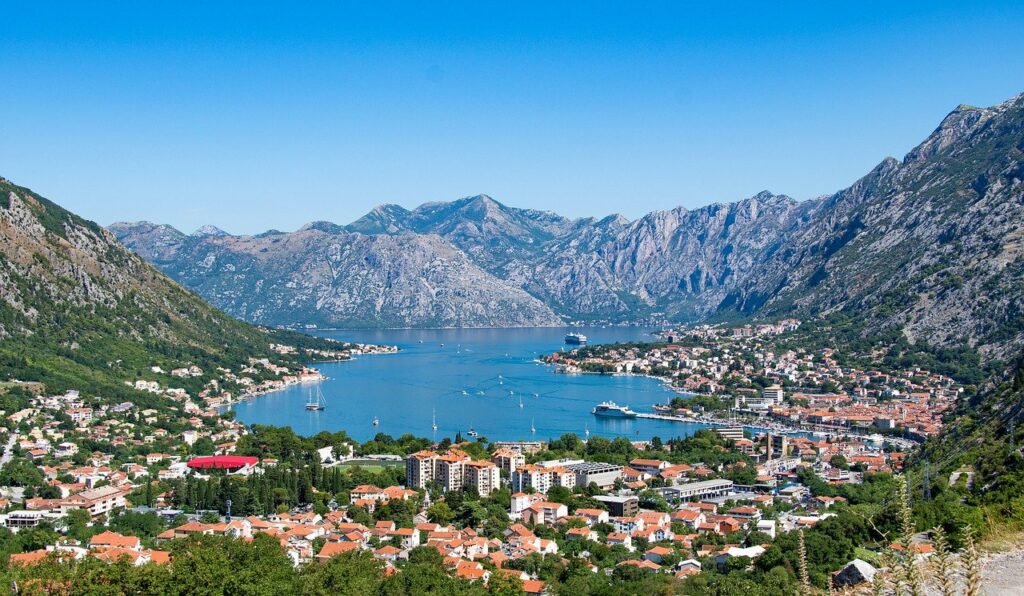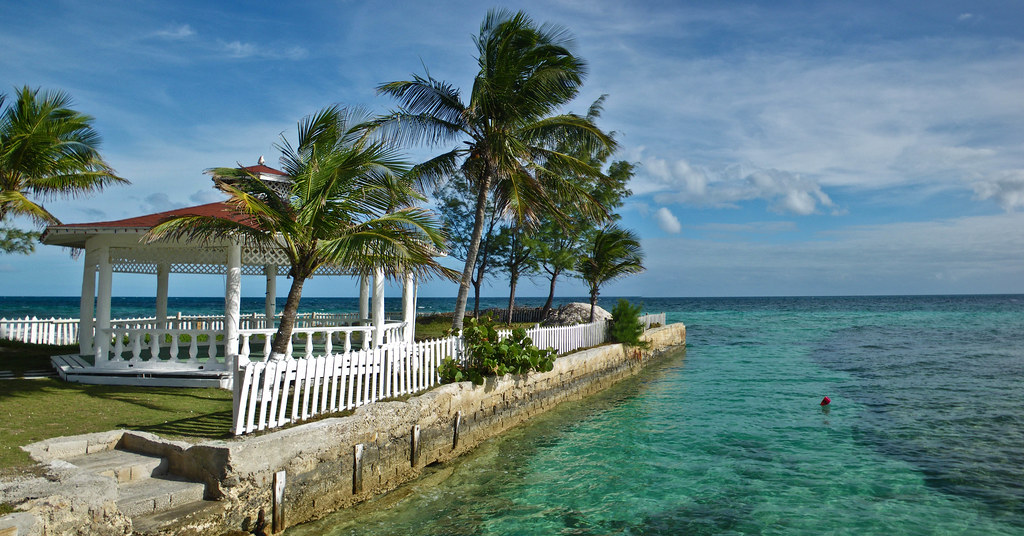Countries with lowest taxes part 3 – Here can be found Part 1 and Part 2.
Which countries should be considered for beneficial tax residency in the world
In order to find a jurisdiction where the lowest taxes in Europe do not need to hang out for hours on the Internet. The first source that indicates fairly good taxation conditions is the government-approved list of offshore countries. The latter are the jurisdictions where, according to government analysts, the taxation regime is much better.

Most often we can see the following countries in those lists:
- Andorra;
- Gibraltar;
- Cyprus;
- Monaco;
- Liechtenstein;
- Montenegro.
- Also, attractive conditions for tax residency in Europe are opening in Bulgaria, Czech Republic, Georgia.
When looking for a “tax haven” you need to pay attention not only to where the lowest taxes in the world are, but also to a number of other parameters. In particular: on the prospects that a specific jurisdiction gives, and on living conditions, on the quality of medicine. Indeed, quite often the status of a resident provides for the need to live in the country for a certain period, which one wants to live fully, in a comfortable and cozy atmosphere, feeling safe.
So, the most favorable conditions for individuals are provided in the following countries:
Andorra

Tax Residents are taxed on all global income. However, the country has no taxes on: wealth, gift, inheritance, capital gains (with the exception of capital gains from the purchase and sale of real estate in Andorra). Since 2015, a progressive personal income tax system has been introduced (one of the lowest taxes in Europe): up to 24,000 EUR – 0%; 24 001 – 40 000 EUR – 5%; from 40 001 EUR – 10%. For married couples, income tax begins with an amount of more than 40 000 EUR in the amount of 10%. Tax is also charged on interest on bank deposits , but from an amount exceeding 3,000 EUR. Capital gains tax on the sale of real estate is 15%, but every year the rate decreases and from the 13th year of ownership of the property it is possible to sell it without incurring fiscal obligations.
Bulgaria

Tax residents in Bulgaria are subject to fiscal liabilities from world income. The fixed rate of personal income tax in the country is only 10%. In addition to income tax in Bulgaria, state insurance contributions are applied: social and health insurance: social insurance – from 24.7 to 25.4%, where from 14.12 to 14.82% to pay the employer, and 10.58% – the employee; health insurance – 8%, where 4.8% is paid by the employer, and 3.2% – the employee.In the country there is no capital gains tax, but there is – on real estate. Its size is from 0.01 to 0.45%. Personal income tax at the level of 10% makes Bulgaria the country with the lowest taxes in Europe.
Gibraltar

The personal income tax rate depends on the system chosen: surcharge or gross income. The surcharge system provides for the calculation of income tax minus surcharges, while the following rates apply: the first 4,000 pounds sterling – 14%; the next 16,000 pounds sterling – 17%; further – 39%. System based on gross income: first £ 10,000 – 6%; next £ 7,000 – 20%; then 28%. Gibraltar also has social security contributions: 10% of an employee’s gross income, with a minimum £ 6.05 and a maximum of £ 30.25 per week; 20% of the employer’s gross income, with a minimum of £ 18.15 and a maximum of £ 40.15 per week; 20% of the gross income of a self-employed person, while a minimum of £ 12.10 and a maximum of £ 36.85 per week There are no tax liabilities: VAT, wealth, inheritance, property, dividend, gift and no social contributions. around £ 11,450 is exempt from income tax. The country also applies a variety of deductions, which reduce the fiscal burden and create conditions for Gibraltar to retain its status as the European country with the lowest taxes for a long time.
Georgia

The income tax rate in Georgia is quite high – 20%, but it should be noted that it is withheld only from local income. In addition, the advantage of Georgian tax residency is the low taxation rate of dividends – 5% (withheld only when distributing profits from local companies) . There are also two special regimes of interest for tax residency in Georgia: individuals with an annual turnover of less than GEL 30,000 who do not use hired employees and registered as a micro-business entity are exempt from taxation; private entrepreneurs with an annual turnover of up to GEL 500,000 can register as a small business entity and pay only 1% per year on gross income. The presence of such special statuses allows us to speak of Georgia as a country, where are the lowest taxes in Europe.
Cyprus

Cyprus is the easiest and fastest jurisdiction to obtain European citizenship and has one of the lowest corporate tax rates in Europe (12.5%). In the Republic, tax residents pay personal income tax on a progressive scale (from annual income): up to 19,500 EUR – 0%; 19,501 – 28,000 EUR – 20%; 28,001 – 36,300 EUR – 25%; 36,301 – 60,000 EUR – 30%; from 60,001 EUR – 35% In addition to income tax in Cyprus, a special contribution for defense is withheld. It only applies to dividends (17%), interest (30% in most cases) and rental income. However, the presence of a special status “non-domiciled tax resident” exempts from paying taxes on dividends, interest, rental income and military tax. In Cyprus there is no inheritance tax, on real estate, on capital gains (except for real estate transactions).
Monaco

Since 1870, there is no personal income tax in the principality, tax on capital gains, wealth, property (does not apply to French citizens). It has a tax on rental income of 1%. The almost complete absence of fiscal obligations makes Monaco the European country with the lowest taxes. However, it should be noted that it is very difficult to obtain tax residency of the principality without high income and great wealth.
Lithuania

Lithuanian residents pay a 20% tax on global income. Dividends are taxed at a rate of 15% (but the legislation provides for a preferential treatment for certain companies). In Lithuania there is no capital gains tax, inheritance tax is not withheld from close relatives, there is no gift tax or luxury tax. The country applies a social contribution – from 19.5%, which includes health insurance.
Liechtenstein

Liechtenstein has a very loyal progressive income tax system, thanks to which the principality has practically the lowest taxes in Europe. Here annual income is exempt from personal income tax: individuals in the amount of 15,000 CHF; married couples – 30,000 CHF. The maximum income tax rate is 8%, which is applied on annual income above 200,000 CHF for one individual and above 400,000 CHF for a married couple There are no inheritance, real estate and gift taxes in the principality, but there are capital gains (from 3 to 24% depending on the amount) and social security contributions (4.7% pension contribution and 0.5% unemployment insurance).
Montenegro

In Montenegro, residents are required to pay tax on world income. However, the personal income tax rate is one of the lowest in Europe – 9%. Also in the country, there is also a local income, the amount of which depends on the municipality (from 13%).
Czech Republic

The rate of personal income tax in the Czech Republic is 20%, there are no local income taxes in the country. Inheritance and gift tax is not regulated by a special law, but is considered in terms of profit and is taxed at a rate of 15%. However, the country has special regimes that establish some of the lowest taxes in Europe – 6-9%.
UAE

This is not the only country in the Middle East where income taxes are zero, but it is the only one (this is the editorial point of view – it is under discussion!) Where it makes sense for many foreigners to go to live most of the tax year, to pay taxes there. The UAE is attracted by the stability of the political system and economy. The UAE can be called a multicultural country where a foreigner will be relatively comfortable. Many people in the country speak English fluently, and local educational institutions offer curricula in English.
Bahamas

In order not to pay income tax in the Bahamas, you must spend there at least 90 days a year, but at the same time no more than 183 days a year in another country. Citizenship is not required here, the main thing is compliance with the tax residency rule. The authorities of this island state earn on value added taxes, on real estate, import duties, and royalties, as well as on official stamps – the form of fiscal stamps to pay various government fees, taxes, duties. Compared to countries with high taxes, the Bahamas has a fairly high crime rate and almost no (by Western standards) medicine. There are many foreigners in the capital, in particular tourists. The Bahamas is a beautiful country, but not everyone will find what to do there, even 90 days every year. However, as you know, there is no dispute about tastes.
Bermuda

Yes, there is no income tax in Bermuda, but all employers pay tax on the payroll fund, so there is no tax and there is a tax. For foreigners who don’t plan to work there, the Bahamas is a tax haven. Living conditions in Bermuda are even better than in the Bahamas, but the cost of this accommodation is much higher. Remoteness from the mainland leaves an imprint on the price level. For example, the price of 1 liter of milk can go up to $ 4, while a simple small apartment will cost $ 2,000 a month. The banking sector is developed on the islands, and employers have the right to invite foreigners to work under a simplified scheme. It will be expensive and beautiful to live in Bermuda, but if you work there, it will be almost heaven on earth.
As you can see, in Europe there are jurisdictions where there is not even an income tax and there is practically no taxation (Monaco, Liechtenstein, Gibraltar). But it should be noted that these countries are blacklisted offshore and therefore cooperation with them has a number of restrictions, for example, it is very difficult to transfer money there. However, they are best used to generate passive income.
If you need to obtain tax residency in Europe to optimize costs and at the same time not harm your business, then it is better to give preference to such European jurisdictions as Lithuania, Bulgaria, Czech Republic, Georgia. The latter have special tax regimes that can significantly reduce fiscal costs, without giving the bank compliance grounds for additional checks.
It is rather difficult to choose the country where the best tax residency in Europe is on your own. Indeed, in addition to the need to process large amounts of data, one must take into account that fiscal legislation is constantly changing, and jurisdictions that previously had the status of a “tax haven” may lose it. Therefore, it is better to turn to professionals who always “keep their finger on the pulse of events.”
You can consider the above-mentioned countries for starting your business or start your new job. We hope now you know on which countries you can rely on as a tax heaven.


